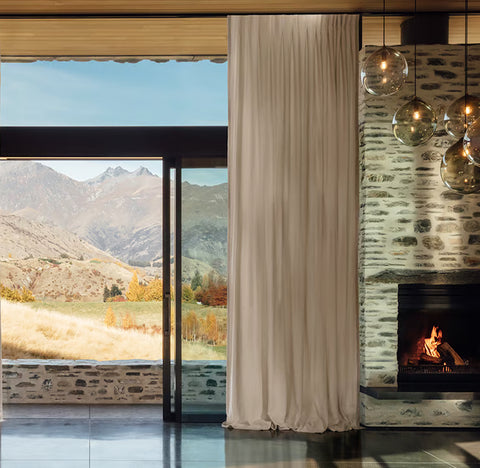
OEKO standard 100
Heirloom's curated textiles include fabrics with OEKO standard 100 certification. If a product is labeled as Oeko-Tex certified it is completely free from harmful chemicals and safe for human use with minimal environmental impacts caused from production. To attain Oeko-Tex Standard 100 certification, the fabric has been tested and certified to be free from harmful levels of more than 100 substances known to be harmful to human health.
James Dunlop (JD) Chateau Polyester fabric offers this certification. JD describes the OEKOtex stadnard as follows:
"OEKO-TEX® is an environmental certification system relating to the entire textile production process. In order for a product to be awarded the STANDARD 100 by OEKO-TEX® certificate, it must undergo rigorous testing which ensures its production process is harmless in human ecological terms. A fabric can only be awarded the STANDARD 100 by OEKO-TEX® certificate if it meets a strict set of environmental criteria which go far beyond the necessary legal requirements. The end result? Peace of mind for both the client and the end user.
Why should the fabrics you choose have the STANDARD 100 by OEKO-TEX® certification?
The Oeko-Tex 100 - Confidence in Textiles label - is used to distinguish products that feature all the advantages of modern textiles and of course post no health risks to the consumer.
STANDARD 100 certification controls the use of chemicals used in the production process, as well as ensuring that there are no harmful substances remaining in the end product which could irritate or damage the skin. It puts consumer safety and environmental responsibility at the heart of textile manufacturing. By selecting STANDARD 100 by OEKO-TEX® certified fabrics, you can be reassured that you are making a safe and environmentally-friendly choice for your design requirements.
What is it about STANDARD 100 by OEKO-TEX® certified fabrics that makes them a better choice?
STANDARD 100 by OEKO-TEX® is one of the world’s best-known labels for textiles tested for harmful substances. It stands for customer confidence and high product safety. STANDARD 100 certification means that environmental factors are given careful consideration at every stage of the production process.
This means that the use of chemicals is closely monitored and the criteria for certification is updated every year. And you’ll be pleased to hear that when STANDARD 100 by OEKO-TEX® certified fabrics are washed, they do not release any harmful residues.
How is the product assessed?
Independent testing institute’s carefully analyse products against extensive production requirements that go well beyond legal standards required for textile-goods production and are weilded worldwide with updates being made annually to ensure that they conform to the latest developments in technology and science.
Oeko-tex testing programs are customised to assess the materials, agents and Dye-stuffs used in production. Products need to be colourfast, free of any allergenic materials, have no presence of harmful substances and deemed safe for any emission of VOC’s (Volatile Organic Compounds) into the home’s air quality before the item can attain the distinction of an Oekotex confidence in textiles label.
Safe for skin contact
When choosing fabrics for use in the hospitality sector, a key factor is to consider any detrimental effects they may have on the skin. As part of our STANDARD 100 by OEKO-TEX® certification, we can guarantee that all of FR-One’s fabrics are entirely safe for skin contact. Through rigorous testing, it has been proved that no harmful chemicals are released from our fabrics. The greater the amount of skin contact to the textile during use, the more stringent the standards used to test it ie; Children’s toys, clothing and soft furnishings are tested to a higher level of scrutiny, using more than 100 parameters as a basis for carefully analysing the products suitability for this level of certification.
STANDARD 100 by OEKO-TEX® is a globally standardized, independent
testing and certification system for textile raw materials, intermediate &
end products of all processing stages and accessory materials used.
